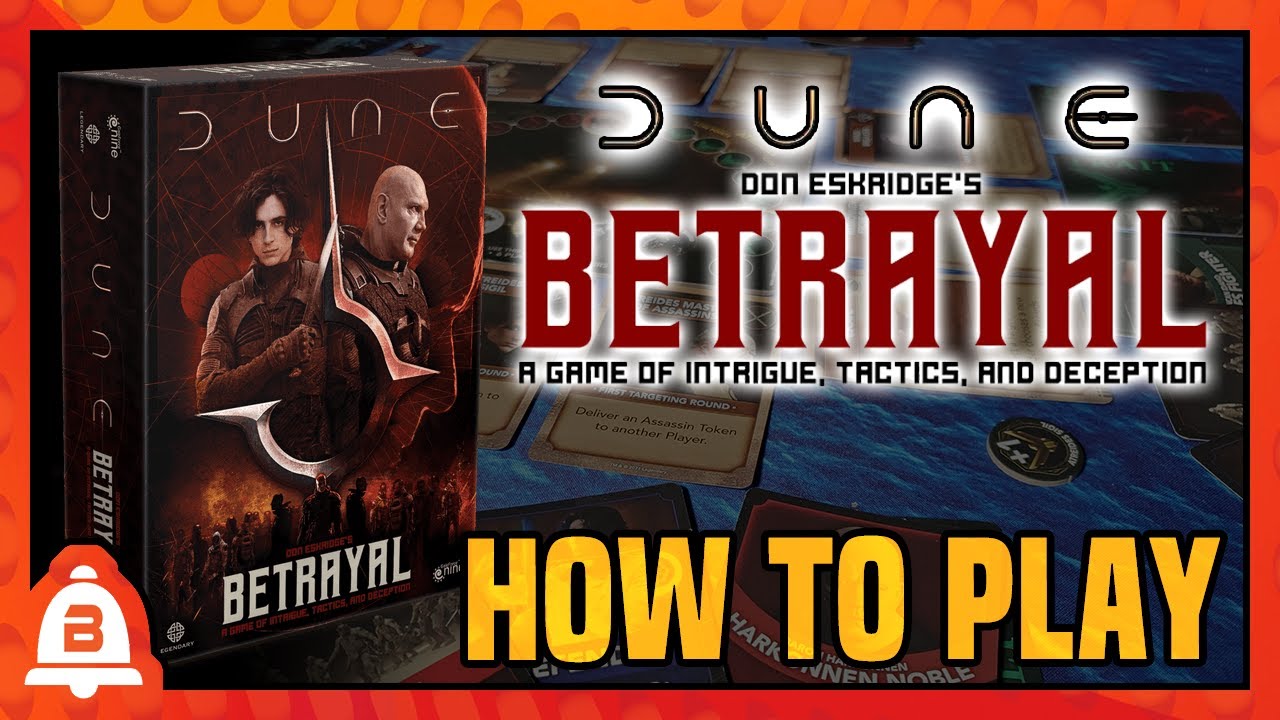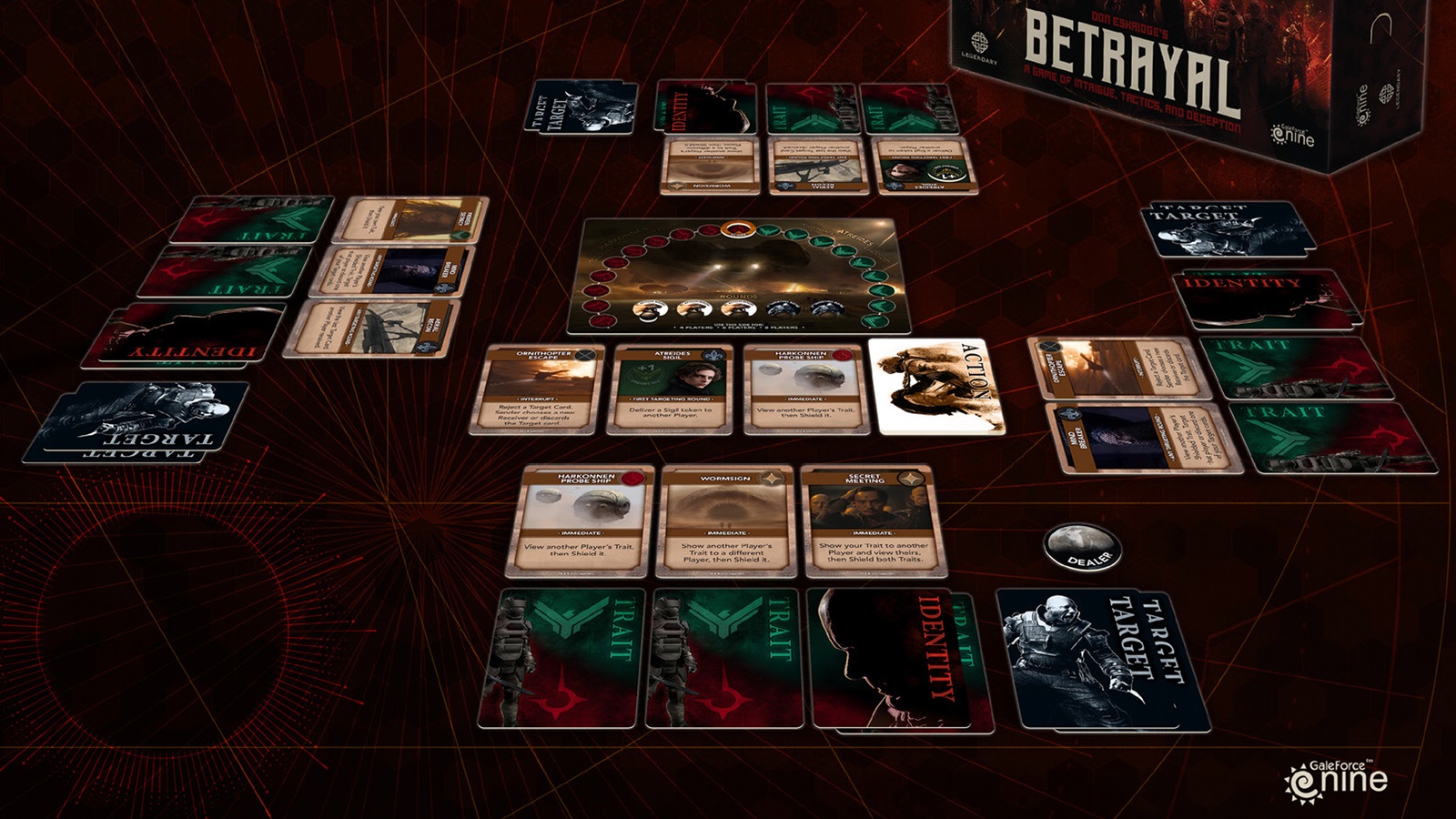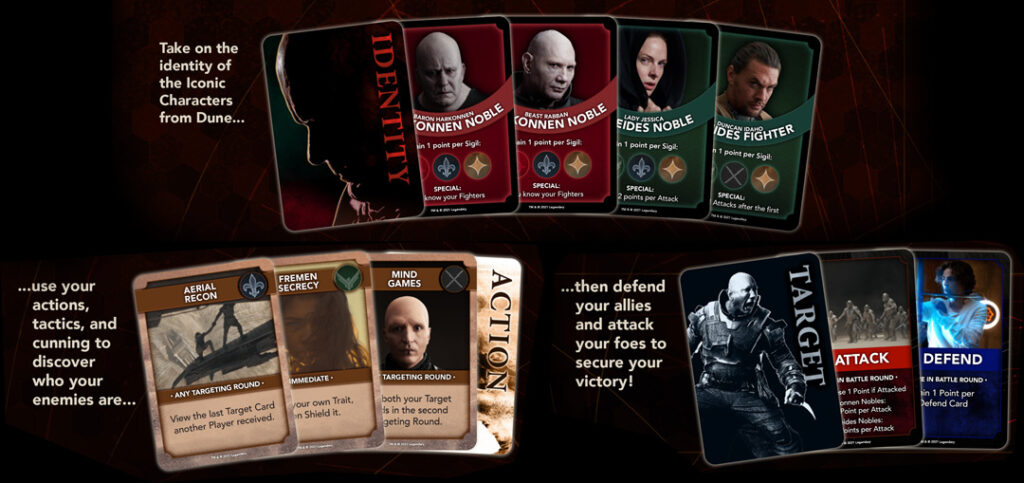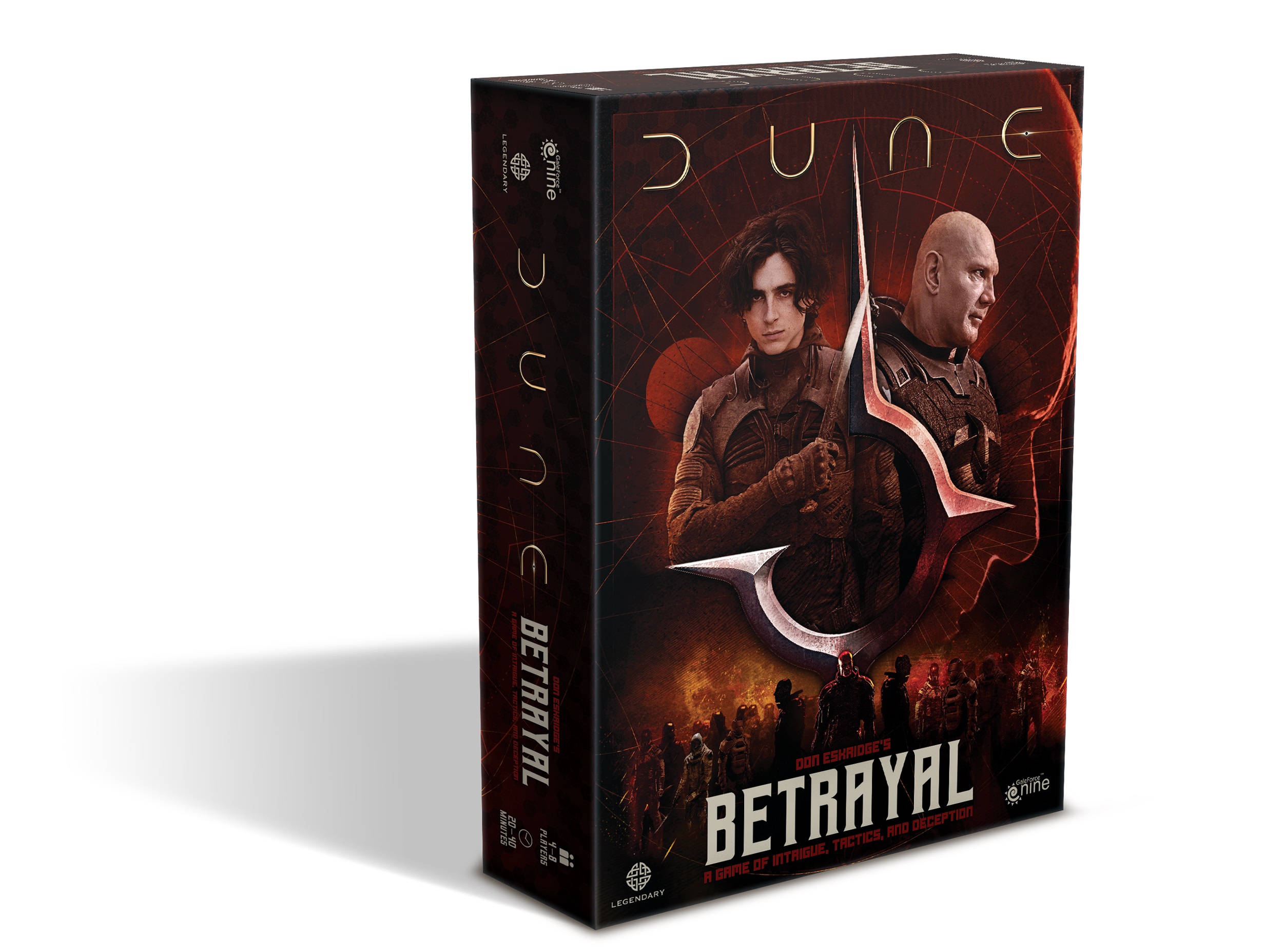“Dune: Betrayal” Is The Party Game For People Who Hate Party Games

Dune: Betrayal might look like your typical hidden role party game, but it shakes up the formula in fantastic new ways.
In your typical hidden role party game, you usually have one or two people playing as the secret agent, the nefarious betrayer, or the unknown monster. In order to do well, they have to be a great liar, be able to pull off a triple-bluff with ease, and generally have several natural inclinations most people don’t strive to build up.
This is not an issue with Dune: Betrayal.
What makes Dune: Betrayal stand out from those sorts of games is the foundation on which the gameplay rests. This is not a game of good versus evil, with everyone pretended to be on the “good” side. In Dune: Betrayal, both teams are on equal footing.
Overview
At the start of the game, all players are secretly given an Identity card, which marks them as either Atreides Noble, Atreides Fighter, Harkonnen Noble, or Harkonnen Fighter. The teams are split based on their house, but both being a fighter or being a noble offer certain advantages. So, the name of the game is get your team the most points.
Thing is, you don’t know who your teammates are!
During the first half of the game (the Action phase), players pick Actions cards from a selection of 3 available cards. These cards do a lot of things, but perhaps the most important thing they do is allow players to peek at each others’ Trait cards. Trait cards hint at a players full identity, either which house they belong, or if they are a noble or fighter. But attempting to call out another player for being your enemy won’t do you a heck of a lot of good when you move into the next phase of the game: the Targeting phase.
In the Targeting phase, players use the Attack and Defend cards on one another. Attacking a player causes them to lose points, and Defending a player causes them to gain points. After all players have distributed their Attack card and their Defend card, the game moves into scoring. Players gain points for each Action card they drew which has a sigil matching their house or rank, they gain points for each other player who chose to defend them, and they lose points for each time they were attacked.
Review
Overall, I really like how this game handles the hidden role mechanic. This game really does strip the “werewolf/mafia” format away and replace it with something so much better.
You don’t have to worry about being a good liar. You don’t have to deal with player elimination. There’s no having to come up with some clever lie when a “mission failure” card appears each time you go on a mission. Dune: Betrayal has gotten rid of all those problems. This is not a game of everyone ganging up on one person they think is the traitor. This is a game of everyone making sure they appear as friendly and trustworthy to as many people as possible, lest they be targeted by acting too suspicious.
I say this with full certainty, Dune: Betrayal will absolutely become my go-to party game.
Dune: Betrayal – $25 – Available October 2021
In this game of tactics and deception, you are secret agents, representing different roles within the famous factions vying for control amid the sands of Dune. The goal is to learn the identities of your foes whilst protecting your nobles, forming alliances, and utilizing tools to gain knowledge, and therefore power.
Pay close attention to determine your allies and enemies, then defend your allies, and attack your foes to secure victory.
- 4 – 8 Players
- 20 – 40 Minutes








